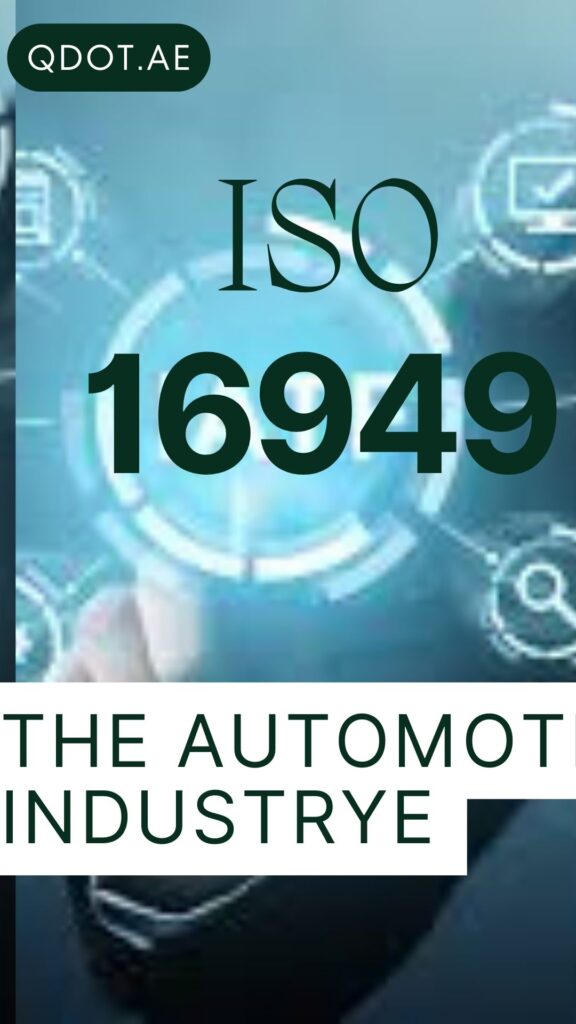In the fast-paced, precision-driven world of automotive manufacturing, quality and efficiency are paramount. Ensuring that every component, system, and final product meets stringent standards is not just a goal; it’s a necessity. This is where It comes into play, serving as a cornerstone for quality management in the automotive industry.
Understanding ISO 16949
ISO/TS 16949, now known as IATF 16949, is a technical specification aimed at the development of a quality management system (QMS) that provides for continual improvement, emphasizing defect prevention and the reduction of variation and waste in the automotive industry supply chain. It was developed by the International Automotive Task Force (IATF) and the International Organization for Standardization (ISO).
Key Features of ISO 16949
- Customer Focus: Ensures that the quality management system is customer-centric, aiming to meet and exceed customer expectations.
- Process Approach: Emphasizes understanding and managing interrelated processes as a system to contribute to the organization’s effectiveness and efficiency in achieving its objectives.
- Continuous Improvement: Encourages organizations to continuously improve their processes, products, and services.
- Risk Management: Incorporates risk-based thinking to identify potential risks in the manufacturing process and take proactive steps to mitigate them.
- Integration with ISO 9001: Aligns with ISO 9001, enhancing compatibility and simplifying the integration of quality management systems.
The Importance of ISO 16949 for the Automotive Industry
1. Enhancing Product Quality
It sets stringent requirements that ensure high standards of quality in automotive products. This leads to the production of vehicles and components that are reliable, safe, and efficient. For consumers, this translates to fewer recalls and longer-lasting vehicles.
2. Improving Supplier Relations
The automotive industry relies heavily on a complex network of suppliers. ISO 16949 helps create a uniform standard for quality across all suppliers, ensuring consistency and reliability in the parts and materials used. This uniformity simplifies supplier management and enhances collaboration.
3. Streamlining Processes
By implementing ISO 16949, automotive companies can standardize their processes, reducing waste and inefficiencies. This streamlining helps in cutting costs and improving production times, ultimately leading to more competitive pricing and faster time-to-market for new products.
4. Enhancing Market Access
Certification to ISO 16949 is often a prerequisite for doing business with major automotive manufacturers. It demonstrates a company’s commitment to quality and can open doors to new markets and opportunities, both domestically and internationally.
5. Boosting Customer Satisfaction
A robust quality management system leads to fewer defects and higher-quality products, which in turn results in greater customer satisfaction. Happy customers are more likely to become repeat buyers and brand advocates, driving long-term business success.
6. Facilitating Compliance and Risk Management
The automotive industry is heavily regulated, and non-compliance can result in severe penalties. ISO 16949 helps organizations meet regulatory requirements and manage risks more effectively. By identifying potential issues before they become problems, companies can avoid costly recalls and legal issues.
7. Encouraging a Culture of Continuous Improvement
One of the core principles of ISO 16949 is continuous improvement. This encourages organizations to regularly review and refine their processes, fostering a culture of innovation and excellence. Employees become more engaged and motivated to contribute to the company’s success.
Conclusion
It is more than just a certification; it’s a comprehensive framework for achieving excellence in the automotive industry. By adhering to its standards, companies can ensure high-quality products, streamline their processes, and enhance customer satisfaction. In a competitive and ever-evolving industry, It provides the tools and guidance necessary to stay ahead and succeed.
#ISO 16949 #ISO 16949certification #ISO 16949consultancy #ISO 16949consultants
